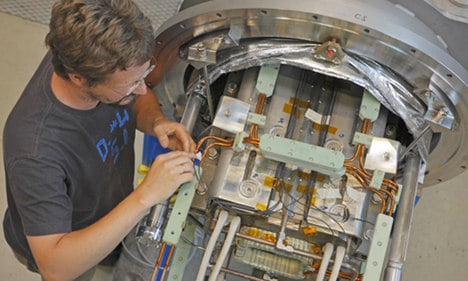The environment minister for the regional state of Hesse, Lucia Puttrich, officially gave the green light for a new giant Facility for Antiproton and Ion Research in Europe (FAIR), which is to built on a 20-hectare site in Darmstadt, not far from Frankfurt.
“With it, Germany has secured a leading place in field of fundamental physics research,” said Education Minister Annette Schavan on Tuesday.
In what is being described as one of the biggest research projects in the world, more than 3,000 scientists from more than 50 countries will work at FAIR from 2018, studying the nature and origins of the universe.
Günther Rosner, head of research for the project, said that FAIR would be trying to answer previously unanswered questions such as: How was the universe created? And, why are we here?
“It will not just be about where we came from, but also the world that exists around us now,” he added.
FAIR is being financed by eight different countries, including France, Russia and India.
AFP/DPA/The Local/jcw




 Please whitelist us to continue reading.
Please whitelist us to continue reading.
Member comments